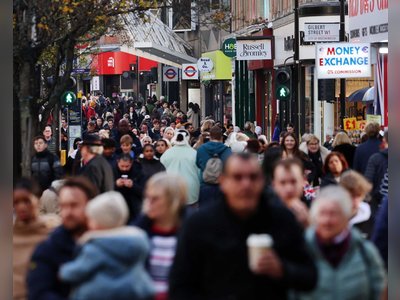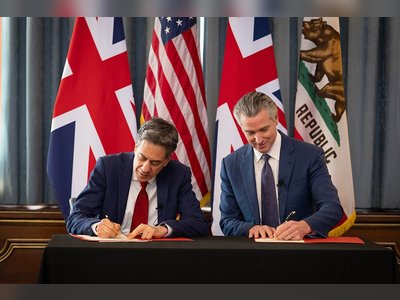The European Union faces criticism for excessive regulation and applying overbearing trade policies
Recent farmer protests in France, Italy, and Belgium against high costs, stringent regulations, and cheap imports coincide with the EU's trade negotiations.
Despite European farmers receiving substantial subsidies, accounting for one-third of the EU budget, and holding significant lobbying power, their protests have led to the suspension of EU trade talks with Mercosur countries and the withdrawal of a policy requiring fields to be left fallow.
These events underscore the farmers' influence in Brussels and signal tough EU stances on food products in trade deals, but also the EU's quick bowing to domestic pressures while advocating for climate action internationally.
Last year, the EU's trade deal with New Zealand included sanctions for noncompliance with environmental and labor standards, showcasing its intent to drive positive global change. Yet, critics argue that EU trade practices are neither effective trade-wise nor environmentally beneficial.
Emerging economies believe the EU should support them through trade and technology rather than impose sanctions. Diplomats from India and other nations have expressed concern over these punitive measures, considering them unrealistic for enforcing sustainability. Brazil's president also resists such coercive tactics.
The EU has set a carbon emissions tax and the Carbon Border Adjustment Mechanism (CBAM) to protect its industries, which some argue unfairly shifts the burden of historical pollution onto poorer nations.
Some believe the EU is sharing the costs of its green transition and neglecting the Paris Agreement principle of shared but differentiated responsibilities.
The fairness of the CBAM and its effect on trade agreements remains contested, and even some European economists suggest separating labor and environmental standards from trade deals to maintain their primary goal of facilitating commerce.
EU trade strategy is also influenced by geopolitical interests, as it seeks partnerships with democratic countries rich in human and natural resources to reduce reliance on authoritarian regimes like Russia and China. Nevertheless, commercial interests are likely to prevail in trade deal negotiations, according to experts.
In essence, the EU's ambitious regulatory approach in trade agreements may need reevaluation, with a more balanced strategy potentially being more effective in the long run.
These events underscore the farmers' influence in Brussels and signal tough EU stances on food products in trade deals, but also the EU's quick bowing to domestic pressures while advocating for climate action internationally.
Last year, the EU's trade deal with New Zealand included sanctions for noncompliance with environmental and labor standards, showcasing its intent to drive positive global change. Yet, critics argue that EU trade practices are neither effective trade-wise nor environmentally beneficial.
Emerging economies believe the EU should support them through trade and technology rather than impose sanctions. Diplomats from India and other nations have expressed concern over these punitive measures, considering them unrealistic for enforcing sustainability. Brazil's president also resists such coercive tactics.
The EU has set a carbon emissions tax and the Carbon Border Adjustment Mechanism (CBAM) to protect its industries, which some argue unfairly shifts the burden of historical pollution onto poorer nations.
Some believe the EU is sharing the costs of its green transition and neglecting the Paris Agreement principle of shared but differentiated responsibilities.
The fairness of the CBAM and its effect on trade agreements remains contested, and even some European economists suggest separating labor and environmental standards from trade deals to maintain their primary goal of facilitating commerce.
EU trade strategy is also influenced by geopolitical interests, as it seeks partnerships with democratic countries rich in human and natural resources to reduce reliance on authoritarian regimes like Russia and China. Nevertheless, commercial interests are likely to prevail in trade deal negotiations, according to experts.
In essence, the EU's ambitious regulatory approach in trade agreements may need reevaluation, with a more balanced strategy potentially being more effective in the long run.











